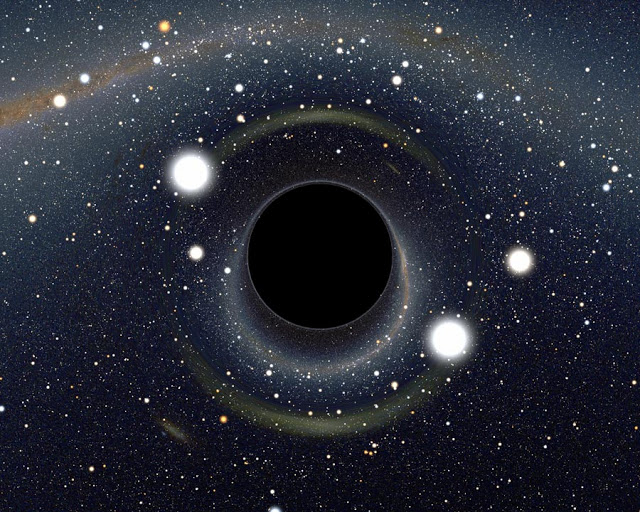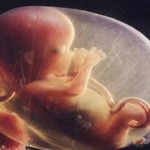Where Did God Come From?
by Fr. Robert Spitzer
Filed under The Existence of God

The problem of something coming from nothing arises out of three kinds of realities which require a cause for their existence. One, realities that have a beginning; two, realities which are conditioned in their existence (dependent for their existence on something else—the fulfillment of other conditions); and three, realities that are conditioned by time.
I am restricting my comments here to realities which have a beginning. If you are interested in conditioned realities, read chapter three of my book New Proofs for the Existence of God, and if you are interested in realities conditioned by time, read chapter five of the same book.
Returning to realities which have a beginning, if a reality—say, our universe—has a beginning, then that beginning point represents the point at which the universe came into existence (including its physical time). Prior to that point the physical universe did not exist—in other words, it was nothing—absolute nothing. Now here is where the problem of something coming from nothing appears on the scene. If the universe was truly nothing, and if from nothing only nothing can come, then the universe needs something beyond itself to cause it to exist—to bring it from nothing to something. Without this transcendent cause (Creator), the universe could not bring itself from nothing to something, because it was nothing.
If a reality doesn’t have a beginning, if it is not conditioned in its existence, and if it is not conditioned by time, that reality does not have to have a creator—it does not have to have a cause for its existence, because it was never nothing (as our universe was prior to its beginning) and it was not dependent on anything else for its existence. It is its own existence—indeed, it is existence or being itself. Such a reality is not contradictory—it is, in the words of many philosophers, necessary.
There is nothing in the world of logic that requires every being to have a creator or a cause. The only beings that require a creator or a cause, as I said above, are those which have a beginning, those which are dependent on something else for their existence, and those which are conditioned by time.
Now let’s return to the question. God is defined as a being that does not have a beginning, that is not dependent on anything for its existence, and that is not conditioned by time, and so God does not need a cause. Indeed, if you read chapters three and five of New Proofs, you will see that God must exist, because there must exist at least one reality which has no beginning, is not dependent on anything else for its existence, and is not conditioned by time.
The short reason for this, which is explained fully in the book, is as follows: if all beings have a beginning, then all beings will have been nothing prior to their beginning, but this means that nothing will ever come into existence. Why? Let’s say our universe is nothing without the existence of a prior reality, but that prior reality is nothing without the existence of another prior reality, and so forth ad infinitum. Then the whole of reality is nothing without prior realities, but we have no end to the prior realities (which are nothing).
In short, the sum total of all the realities which are nothing without other realities, which are nothing without other realities, which are nothing...is nothing. Zero added to itself an infinite number of times is zero.
You can read the full explanation in chapters three through five of the book. If you do not have at least one "reality which is NOT nothing prior to a beginning" (like God), then you have no reality at all.
Now it just so happens that there can be only one reality that does not have a beginning, is not dependent on anything else for its existence, and is not conditioned by time. The proofs for this are in the book, and it will take too long to explain them here. The ultimate conclusion is there has to be at least one "beginningless being"—and there can be only one "beginningless being"—and this is what we mean by "God."
Now let’s return to the question—the reason we ask the question "why does the universe have a cause?" or "why do we have to explain how the universe came from nothing to something?" is because there is an increasing amount of evidence from physics, the philosophy of mathematics, and metaphysics that imply and even require that the universe has a beginning. This evidence can be found in chapters one through five of New Proofs) and includes the Borde-Vilenkin-Guth 2003 theorem, entropy, the Borde-Vilenkin 1993 theorem, etc. These questions don’t come up with respect to God because there is not only no evidence that God had a beginning, or is dependent on something for its existence, or is conditioned by time. Indeed, as noted above, there must be at least one being—and only one being (i.e. God)—that does not have a beginning, is not dependent on anything for its existence, and is not conditioned by time.
Related Posts
Note: Our goal is to cultivate serious and respectful dialogue. While it's OK to disagree—even encouraged!—any snarky, offensive, or off-topic comments will be deleted. Before commenting please read the Commenting Rules and Tips. If you're having trouble commenting, read the Commenting Instructions.












